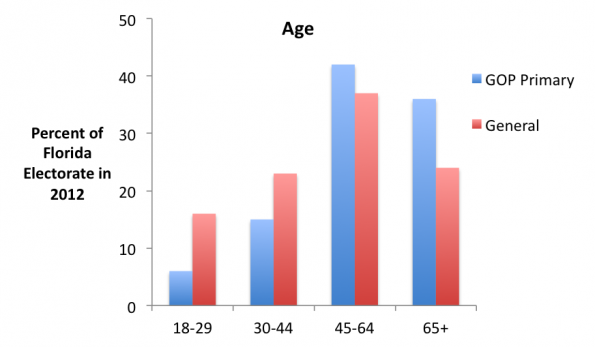GOP chairman Reince Priebus recently gave an interview with the Des Moines Register in which he seemed to be arguing for an expansion in the number of primaries and caucuses in which Republican presidential candidates compete. If I understand his argument correctly, he’s saying that by getting involved in these early party contests, the Republican candidates will be better equipped to compete in those states in the general election. As he says,
The issue is that in the past, it wasn’t just Iowa and New Hampshire and South Carolina. It used to be that we fought over states like Washington and California. We actually fought in the Northeast. And we were winning in places like Delaware and New Jersey. Now we’re not winning any of those places. So my point is we’re not going to improve as a party if we’re holding a national election in eight states.
In reality, it’s far from obvious that competing in a primary or caucus makes you any more competitive in a general election. But beyond that, Priebus’ argument ignores the fact that Republican presidential candidates are already competing in quite a few states. As Jamelle Bouie notes, after the first three contests last year, the Republicans competed in key swing states like Nevada, Colorado, and Florida: “By Super Tuesday, Republicans had voted in eleven primaries, the majority of which were in swing states or places where the GOP was trying to become more competitive.”
If Republicans are having a hard time reaching out to the voters of swing states in a general election, it’s not that they’re failing to campaign there during primaries and caucuses. The problem, as Bouie suggests, is just who participates in those primaries and caucuses. Here are some demographic comparisons between Florida’s GOP primary electorate and its general election electorate in 2012:



What the charts show is that the key swing state of Florida has a general electorate that is a lot poorer, younger, and less white than the folks who turn out for the Republican presidential primary. And Florida isn’t unique in this regard.
Of course, it’s not like the people that show up for Democratic primaries are much more representative of the general electorate, either. The point is, you can bring the party to as many states as you want. But if only a narrow, unrepresentative slice of people are going to show up, your message isn’t necessarily going to get to the people you need in November.
(h/t Scott McClurg)





